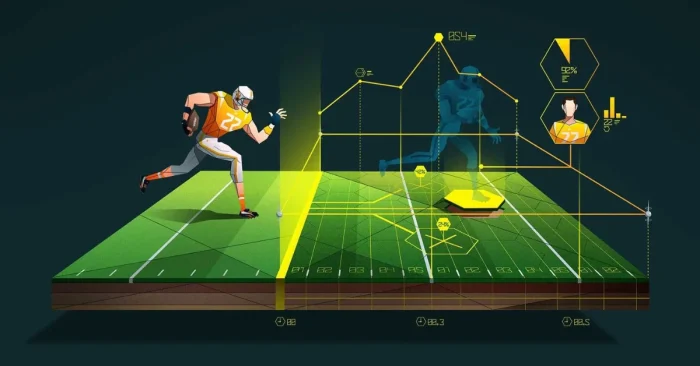Overview
AI tools for athlete performance are revolutionizing sports by providing real-time analytics, predictive insights, and customized training programs. These tools use machine learning, motion tracking, and biometric data to monitor strength, endurance, recovery, and injury risks. From wearables to advanced platforms, AI transforms how athletes train and compete.
By analyzing heart rate, sleep, and physical activity, AI ensures optimal performance while preventing overtraining. Popular tools like Catapult, WHOOP, and STRAVA empower athletes with actionable data for improvement. Whether for professional athletes or fitness enthusiasts, AI-driven performance tools make sports more efficient, safe, and results-oriented.
1. Catapult Sports AI in Performance Tracking
Catapult Sports uses AI-powered wearable devices to monitor athlete movement, workload, and biomechanics. Coaches gain valuable insights into performance trends, training intensity, and injury risks. With detailed reports, athletes can optimize sessions for better results while avoiding overtraining. This helps maximize performance efficiency in team and individual sports.
2. WHOOP AI for Recovery Monitoring
WHOOP applies AI to analyze sleep quality, recovery levels, and daily strain. By collecting heart rate variability, respiratory rate, and activity patterns, it provides a readiness score. This helps athletes balance intense training with recovery, ensuring peak performance without compromising health.
3. STRAVA AI for Training Analysis
STRAVA integrates AI to evaluate running, cycling, and swimming performance. It tracks pace, endurance, and distance while providing personalized recommendations for improvement. The platform also builds a supportive community, allowing athletes to compare performance and stay motivated with data-driven insights.
4. Kitman Labs AI for Injury Prevention
Kitman Labs uses AI to analyze biomechanics, workload, and health data, predicting potential injury risks. It helps athletes and coaches adjust training plans before injuries occur. This proactive approach supports long-term health, consistency, and improved athletic performance across different sports.
5. Zone7 AI for Predictive Performance
Zone7 applies AI algorithms to predict fatigue, stress, and performance dips. It alerts coaches when athletes need rest or adjustments in training intensity. This ensures high performance levels are maintained while minimizing burnout and reducing injury-related setbacks.
6. Athos AI in Wearable Muscle Tracking
Athos smart clothing integrates AI sensors that measure muscle activity in real time. Athletes gain insights into which muscles are activated during workouts, helping refine technique. This enables efficient training, reduces energy waste, and prevents injuries caused by poor form or imbalance.
7. OmegaWave AI for Readiness Testing
OmegaWave evaluates an athlete’s physiological readiness using AI analysis of the heart, brain, and muscular systems. It provides daily readiness scores, guiding training intensity. Athletes and coaches use this information to optimize performance while respecting recovery needs.
8. TrainHeroic AI for Personalized Coaching
TrainHeroic combines AI analytics with coaching tools to create personalized training programs. It tracks performance data and suggests workout adjustments in real time. Both individual athletes and teams benefit from improved efficiency, accountability, and structured progression in training.
9. Hawkin Dynamics AI for Strength Testing
Hawkin Dynamics leverages AI with force plates to measure jump performance, power output, and explosiveness. Coaches use this data to design strength and conditioning programs. This ensures athletes build power systematically while monitoring progress scientifically.
10. Sparta Science AI for Movement Efficiency
Sparta Science uses AI to study movement patterns and detect inefficiencies that may lead to injuries. By providing personalized reports, it helps athletes improve stability, balance, and resilience. This supports long-term performance growth while reducing physical risks.
(FAQs)
Q1: Are AI athlete tools only for professionals?
No, tools like WHOOP and STRAVA are widely used by fitness enthusiasts, semi-professionals, and professional athletes alike.
Q2: Can AI tools replace human coaches?
No, AI complements coaching by providing data-driven insights, but human expertise and emotional guidance remain essential.
Q3: Do AI tools help reduce injuries?
Yes, many tools like Kitman Labs and Zone7 predict risks early, allowing proactive changes to avoid injuries.
Learn More About AI Course https://buhave.com/courses/learn/ai/






